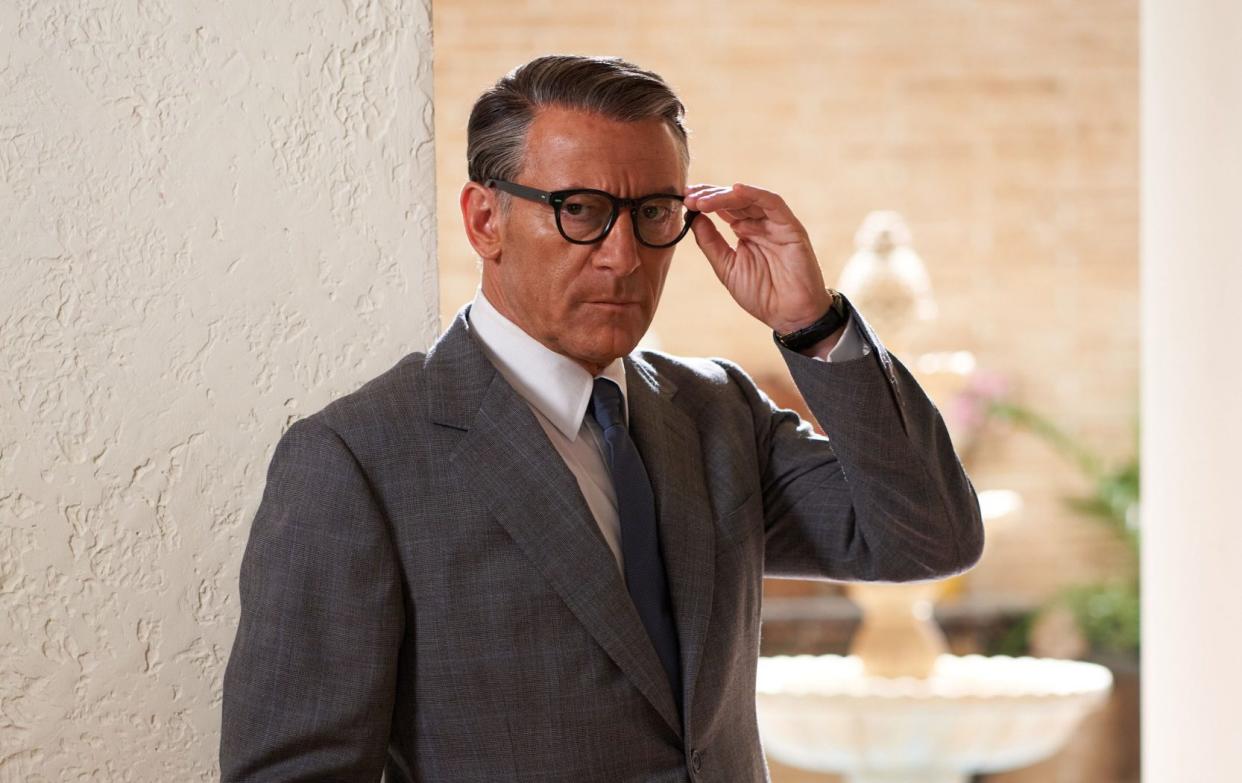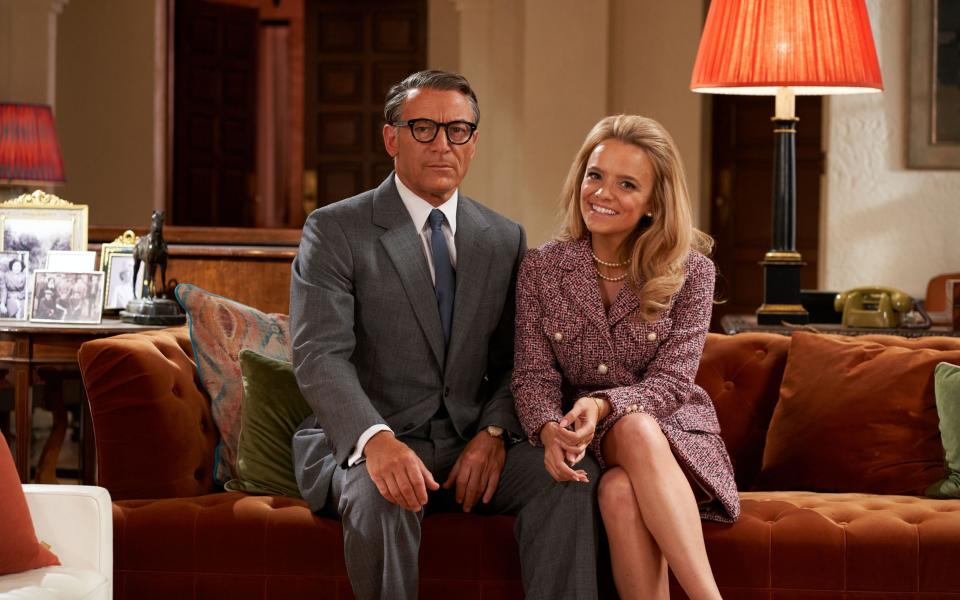Archie, review: Cary Grant biopic reveals the man behind the myth – but was his tan really that bad?

- Oops!Something went wrong.Please try again later.
- Oops!Something went wrong.Please try again later.
“I’ll confess something to you,” Cary Grant tells a theatre audience towards the end of his life, during the opening scenes of Archie (ITVX). “Cary Grant? I made him up. I made up the perfect man in order to survive.”
Most people know that Grant was born plain old Archibald Leach in Bristol. But this biopic is structured around the central sadness in his life, a story so strong that it could form the basis of a decent drama even if the boy at its centre didn’t grow up to be one of Hollywood’s biggest stars.
We go back to Archie’s unhappy childhood. His mother, Elsie (Kara Tointon), was a depressive ruined by the grief of losing Archie’s brother to illness. His no-good father, Elias (Henry Lloyd-Hughes), committed Elsie to a mental institution, telling Archie first that she had gone away and then that she was dead. Archie doesn’t learn the truth until he is 31 and going by the name of Cary Grant.
Jeff Pope’s four-part drama explains how Grant carried this loss and betrayal through his life – the failed marriages, the fear of having children, the protection of his privacy. It also functions as a straightforward biopic, tracing Grant’s rags-to-riches journey from penniless vaudeville performer to Hollywood icon. Mostly, though, it concentrates on Grant’s fourth marriage to the much younger Dyan Cannon – because the show is based on memoirs by Cannon and the couple’s daughter, Jennifer, with both acting as executive producers.

Jason Isaacs is well cast as Grant, even if he does look more like Bob Monkhouse. The role doesn’t require him to play the charming, public face of Grant, only the insecure, sorrowful side. Laura Aikman looks uncannily like Cannon and fizzes with youthful energy; it’s easy to see how Grant fell for her, and equally easy to see why she eventually felt constrained by this cardigan-wearing fusspot 33 years her senior. Grant’s experiments with LSD as therapy add an incongruous note, but did really happen.
Grant rescues his mother from the institution and maintains a relationship with her, albeit at a transatlantic distance. The older Elsie, beautifully played by Harriet Walter, is a difficult character, jealous and damaged. It’s a fascinating mother-and-son dynamic and I wish we were given more of it, rather than the narrow focus on a marriage that lasted only three years.
The main weakness is the drama’s attempts to recreate Hollywood on an ITV budget. No amount of bright sunshine can convince us that we’re really looking at California; the American accents are ropey, and walk-on roles for Mae West, George Burns and others smack of seaside waxworks.
This all adds a level of cheap artifice to a drama which, in its examination of the real man behind the persona, is trying to strip the artifice away. As for the make-up: Grant did have a deep tan, but did it really look like he’d been dunked in Ronseal?

